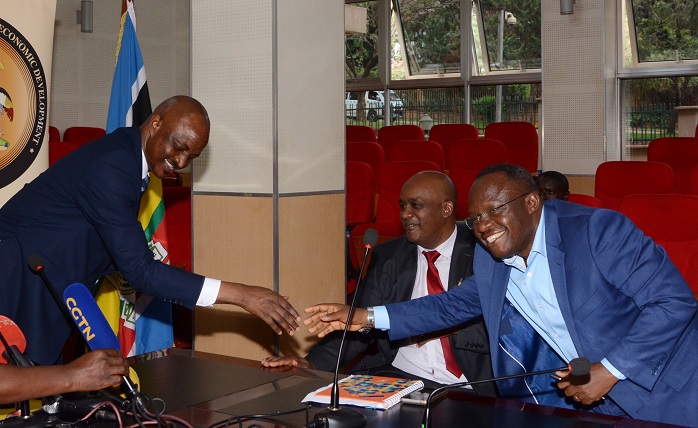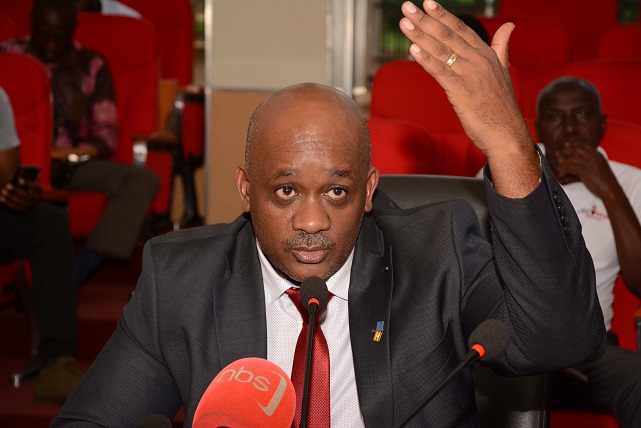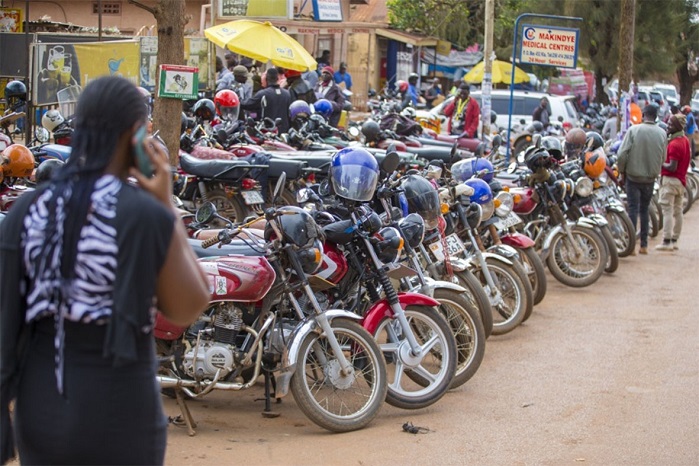
(L-R) Ramathan Ggoobi Permanent secretary/ Secretary to the Treasury at Ministry of Finance interacting with Julius Mukunda Civil Society Budget. Advocacy Group (CSBAG) Executive Director and Arthur Bainomugisha Executive Director Advocates Coalition for Development and Environment during press conference at Ministry of Finance headquarters in Kampala on October 6, 2023.photo by Mary Kansiime
The Parish Development Model (PDM) in Uganda has emerged as a significant vehicle for socio-economic transformation, targeting the 39% of households still trapped in the subsistence economy.
This multi-sectoral approach leverages parishes as centers for development and, in theory, can uplift communities by providing financial support to realize their dream projects.
However, the program faces challenges, including fund diversion, slow disbursement, and bureaucracy. The government’s response and the performance of various districts highlight both the successes and struggles of PDM.
Despite the potential of the PDM to foster economic growth, the program has encountered a significant issue: some beneficiaries have diverted allocated funds for personal expenditures such as purchasing household items and engaging in activities like sports betting.

This misuse not only undermines the program’s objectives but also affects the overall impact on communities.Ramathan Ggoobi, the Permanent Secretary of the Ministry of Finance, emphasized the government’s commitment to address fund diversion.
Speaking to journalists during the announcement of Quarter Two (Q2) funds, he expressed the government’s readiness to apprehend fraudsters and ensure that the core concept of a revolving fund remains intact.
Ggoobi’s directive to district leadership and monitoring offices to ensure that beneficiaries use the funds for their intended purpose is crucial. The requirement for National IDs is intended to ensure proper registration on the PDM Information System, thereby enhancing transparency and accountability.
The PDM Information System, which is now fully functional, is expected to eliminate risks associated with multiple borrowing, facilitate the tracking of beneficiaries, and prevent extortion, bribes, and manipulation of beneficiary lists.To curb fund diversion and misuse, the Permanent Secretary to the Treasury has directed Chief Administrative Officers (CAOs) to sensitize communities about the Parish Revolving Fund’s purpose and ensure that associated processes are free of charge. This initiative aims to halt and apprehend those involved in fund diversion and similar vices.
Another challenge that has contributed to the slow distribution of PDM funds is bureaucracy within banking institutions. Delays in the disbursement of funds by commercial banks have become endemic.
The government is actively working on a mobile money solution and new banking arrangements to expedite the process, making funds more accessible, especially to beneficiaries in remote areas without easy access to traditional banking infrastructure.
Amidst these challenges, several districts and urban authorities have excelled in disbursing PDM funds and fully utilizing the program. These star performers include Kisoro DLG, Kiboga DLG, Buyende DLG, Mbarara City, Rwampara DLG, Kwania DLG, and several others.
Their success serves as a testament to the potential of the PDM in driving socioeconomic transformation.In a move to bolster the PDM, the government has capitalized Savings and Credit Cooperative Organizations (SACCOs) nationwide, with a substantial sum of sh1,058,500,000,000.
This capital injection is aimed at empowering SACCOs to extend credit facilities to members participating in the PDM initiative. All 10,585 verified SACCOs have been capitalized with sh100 million each, further reinforcing the financial structure.

The government’s directive for CAOs to ensure 100% fund disbursement by the end of October demonstrates a commitment to accelerate progress, particularly to allow PDM beneficiaries to take advantage of the forthcoming rainy season.
The Parish Development Model continues to be a government strategy to stimulate wealth creation and employment generation at the parish level. The program is designed to boost productivity and stimulate demand for goods and services, ultimately contributing to the development of the Ugandan economy.
While the Parish Development Model holds the promise of transforming Uganda’s economy, it faces various challenges that need to be addressed.
The government’s dedication to addressing fund diversion and streamlining fund disbursement, coupled with the exemplary performance of certain districts, highlights the potential for sustainable growth and economic transformation through the PDM




